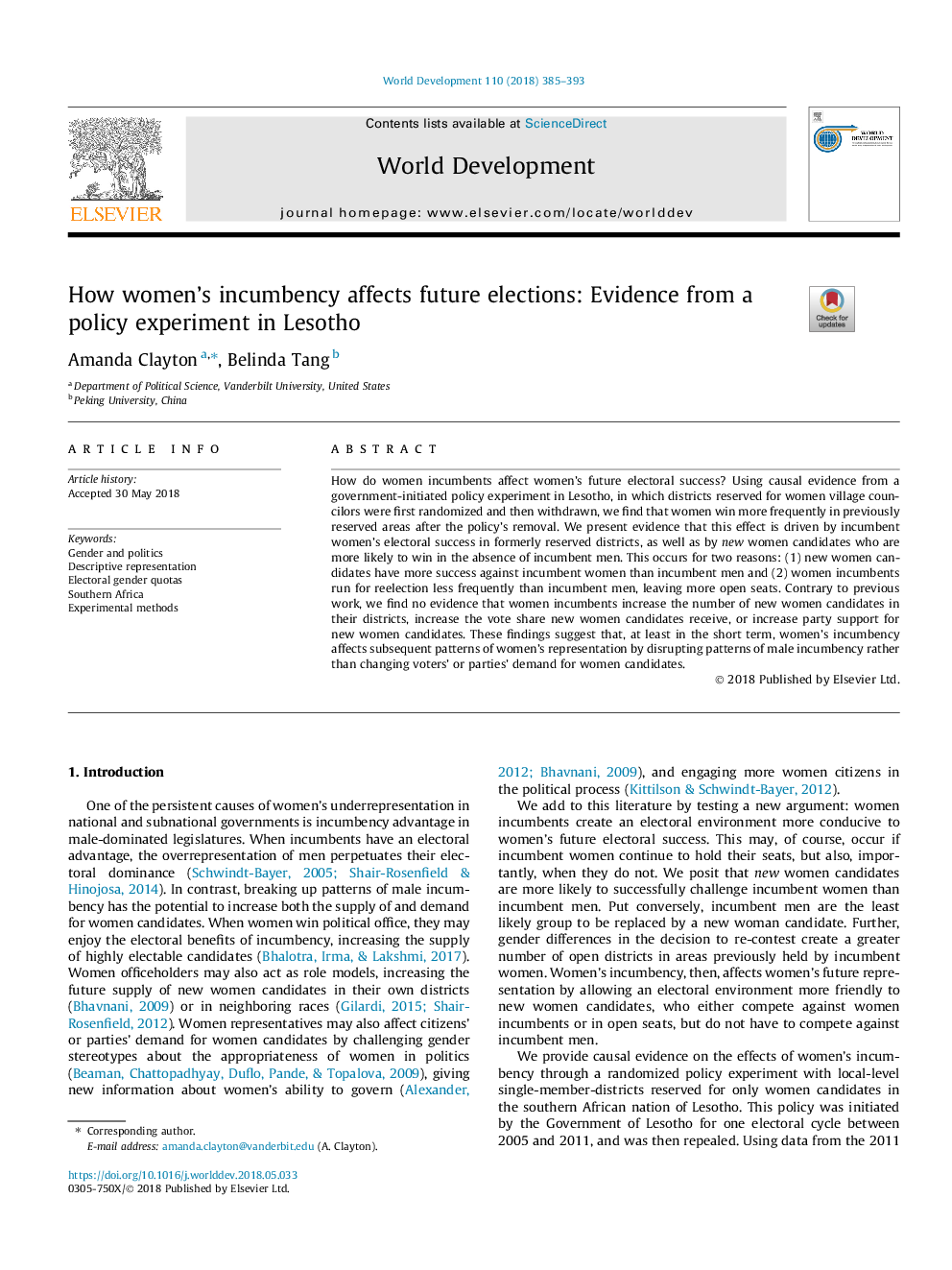| Article ID | Journal | Published Year | Pages | File Type |
|---|---|---|---|---|
| 7391475 | World Development | 2018 | 9 Pages |
Abstract
How do women incumbents affect women's future electoral success? Using causal evidence from a government-initiated policy experiment in Lesotho, in which districts reserved for women village councilors were first randomized and then withdrawn, we find that women win more frequently in previously reserved areas after the policy's removal. We present evidence that this effect is driven by incumbent women's electoral success in formerly reserved districts, as well as by new women candidates who are more likely to win in the absence of incumbent men. This occurs for two reasons: (1) new women candidates have more success against incumbent women than incumbent men and (2) women incumbents run for reelection less frequently than incumbent men, leaving more open seats. Contrary to previous work, we find no evidence that women incumbents increase the number of new women candidates in their districts, increase the vote share new women candidates receive, or increase party support for new women candidates. These findings suggest that, at least in the short term, women's incumbency affects subsequent patterns of women's representation by disrupting patterns of male incumbency rather than changing voters' or parties' demand for women candidates.
Related Topics
Social Sciences and Humanities
Economics, Econometrics and Finance
Economics and Econometrics
Authors
Amanda Clayton, Belinda Tang,
